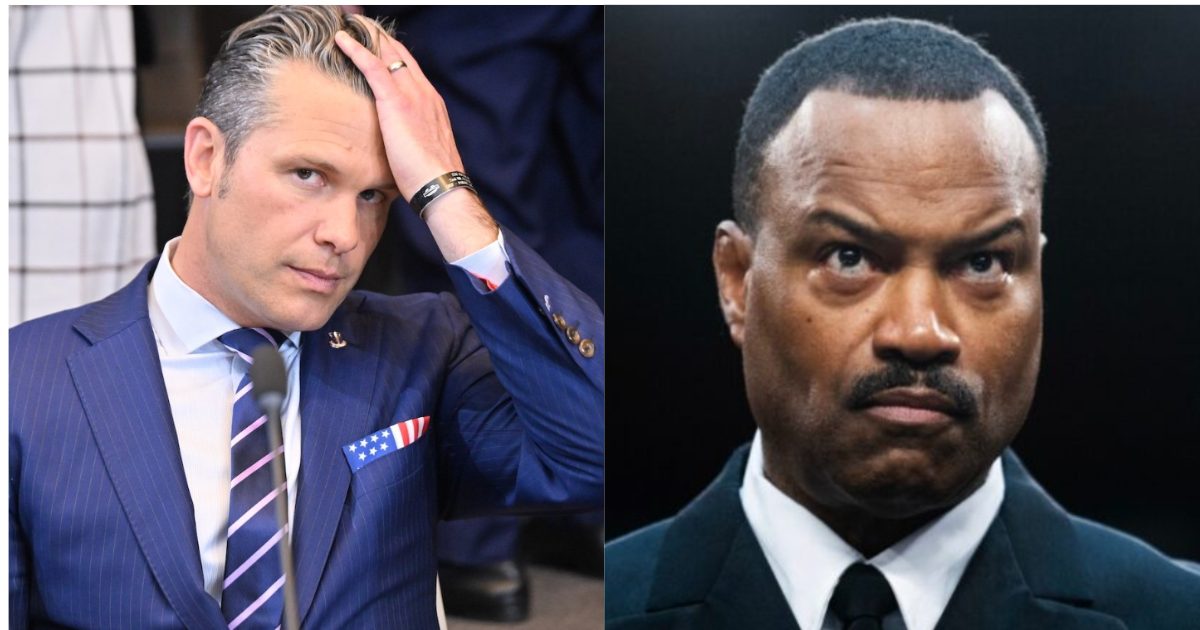Defense Secretary Pete Hegseth has lost yet another senior commander, deepening the sense of churn at the Pentagon just as President Donald Trump’s “narcoterrorist” crackdown in the Caribbean reaches a boiling point. Navy Adm. Alvin Holsey, the four-star in charge of U.S. Southern Command and the public face of the mission in Latin America, will retire in December, nearly two years ahead of schedule for a job that typically runs three.
Holsey, who took the SOUTHCOM post in November 2024, offered no public explanation beyond a brief farewell message, but the timing and backdrop are impossible to ignore. His exit comes in the middle of a rapid U.S. military buildup around Venezuela and a string of deadly strikes on suspected drug-smuggling boats at sea. The operations have killed at least 27 people since the summer and, for the first time, left survivors who were taken into custody after a strike in international waters, an unexpected turn that has already drawn scrutiny from Congress and U.S. allies.
Inside the Pentagon, Holsey’s departure is being read as a fallout from tension with Hegseth over the scope and tactics of the Caribbean campaign. According to a NYT report, the admiral had raised concerns about the mission and the legality of the boat attacks, while Hegseth became increasingly frustrated with what he saw as pushback from within. Sources close to the matter claim that Hegseth had grown “disenchanted” with Holsey and wanted him replaced.
This week, Trump confirmed that he had authorized covert CIA operations in Venezuela, citing drugs and migration as justification. The rare public admission raised questions about the overlap between intelligence operations and military strikes and whether the campaign’s expanding mandate risks triggering a broader regional confrontation.
Holsey’s sudden departure also comes amid an international backlash. Venezuela has petitioned the United Nations to declare the U.S. boat attacks illegal, accusing Washington of killing civilians in international waters. The U.S. has defended its actions as lawful under self-defense provisions, but the discovery of survivors from the most recent strike has complicated the administration’s narrative of “clean and surgical” operations.
For Hegseth, the optics are grim. The defense secretary has championed an aggressive “Department of War” posture and demanded loyalty and message discipline across the military, yet his tenure has been marked by resignations, internal disputes, and media firestorms. Holsey’s departure follows other abrupt shake-ups and a controversial decision to shift parts of the counter-narcotics mission from Southern Command to a Marine expeditionary force, a move that many insiders viewed as a power grab.
Strategically, losing a combatant commander mid-surge is a major blow. SOUTHCOM oversees everything from intelligence coordination with regional partners to maritime interdictions. Swapping out its leader while operations are ramping up creates uncertainty in a theater already on edge. Holsey’s early exit also carries symbolic weight; he is one of the few Black four-star officers to lead a U.S. combatant command, and his departure shows the loss of seasoned leadership during a volatile moment.
The White House has tried to paint the move as routine, but it’s anything but. Holsey is leaving after only one year, the strikes in the Caribbean are under international scrutiny, and Trump’s open endorsement of CIA operations has blurred the line between intelligence and military missions. Whoever replaces Holsey will inherit a fractured command, an angry Congress, and a boss in Hegseth who prizes aggression and absolute loyalty above all else.









